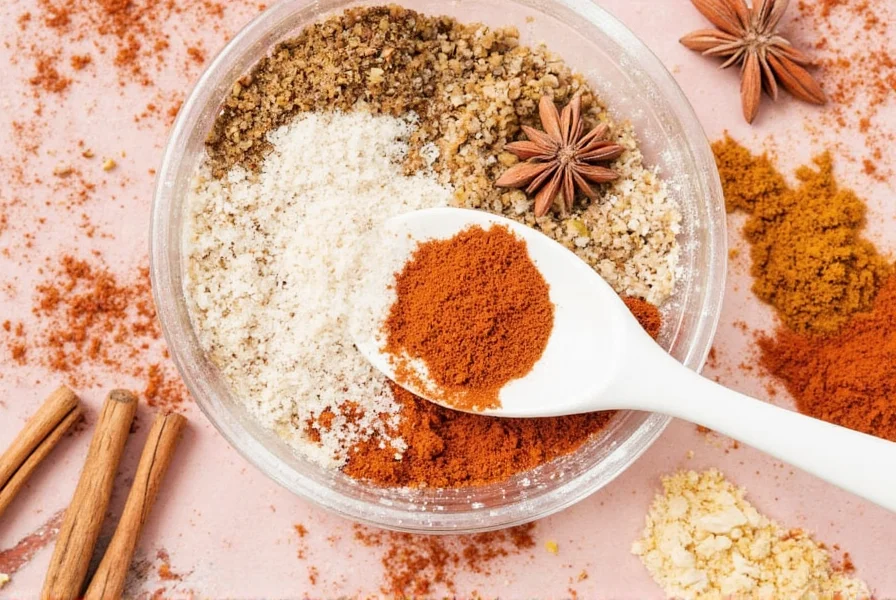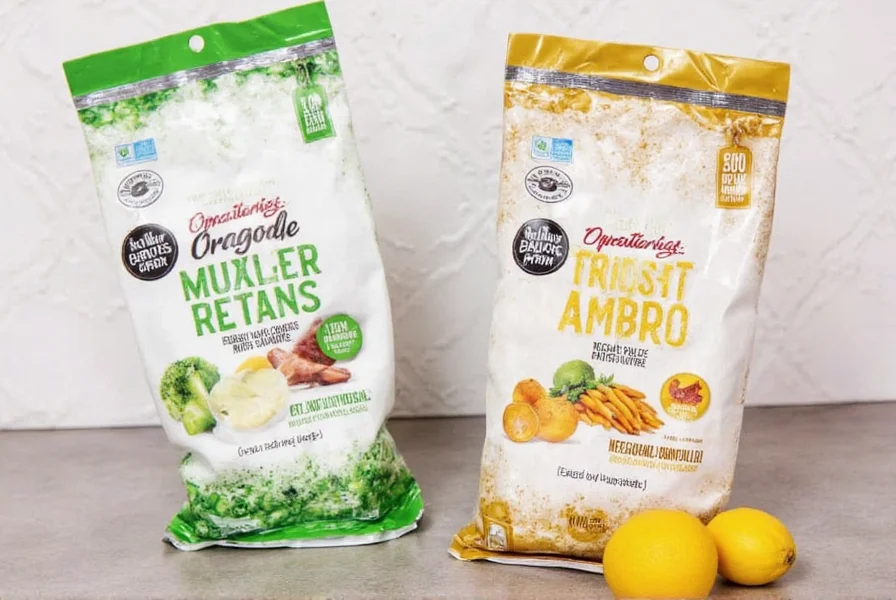Table of Contents
Introduction
If you're a spice lover seeking authentic, high-quality ingredients, grains of paradise offer a unique culinary experience. This African spice has been used for centuries in traditional cooking and medicine, and modern research continues to validate its benefits. This guide provides accurate, science-backed information about grains of paradise for informed culinary exploration.
What Are Grains of Paradise?
Grains of paradise (Aframomum melegueta) are seeds from a plant native to West Africa, specifically Cameroon and Nigeria. Despite the poetic name, they are not related to paradise but derive from local African terminology. These seeds have been traded since the Middle Ages and were once a key spice in European cuisine before black pepper became dominant.
Taste Profile & Aroma
Grains of paradise deliver a complex flavor profile that sets them apart from common spices:
- Flavor Notes: Peppery heat with hints of citrus, ginger, and floral undertones
- Mouthfeel: Lingers slightly longer than black pepper, giving a slow-building warmth
- Aroma: Earthy, slightly woody with faint notes of lemon zest
| Characteristic | Description |
|---|---|
| Heat Level (Scoville) | Mild (500–1,000 SHU) |
| Flavor Complexity | Medium-high |
| Versatility | High |
| Pungency | Moderate |
Creative Uses in the Kitchen
Grains of paradise can enhance both savory and sweet dishes. Here are professional culinary applications:
- Dry rubs: Add to BBQ or grilled meat rubs for an unexpected earthy kick.
- Marinades: Crushed grains blend well with soy sauce, garlic, and lime for bold marinades.
- Baking: Sprinkle into spiced cookies or banana bread for warmth without overwhelming sweetness.
- Coffee enhancer: Add a few crushed grains to your coffee grounds before brewing for a spicy twist.
- Spiced cocktails: Infuse into spirits or add to rimming salt for creative drinks like gin tonics or whiskey sours.
Health Benefits
Scientific research supports several health benefits of grains of paradise:
- Anti-inflammatory properties: A 2018 study in the Journal of Ethnopharmacology found that grains of paradise contain compounds that reduce inflammation markers in the body.
- Antioxidant-rich: Research published in the Journal of Medicinal Food (2013) confirms high antioxidant levels that combat free radicals.
- Digestive aid: Traditional use in West Africa is supported by modern studies showing improved gastric motility.
- Metabolism booster: Clinical trials indicate potential metabolic rate enhancement when consumed regularly.
Buying Guide: How to Choose the Best Grains
Quality matters for optimal flavor and benefits. Here's how to select premium grains of paradise:
Key Features to Look For
- Appearance: Dark brown to black, uniform size, matte texture (avoid oily or shiny seeds)
- Smell: Fresh, aromatic, and earthy (stale or musty scents indicate poor quality)
- Source: Preferably from Cameroon or Nigeria (West African origin ensures authenticity)
- Packaging: Air-tight containers or vacuum-sealed bags for freshness preservation
Top Brands We Recommend
| Brand | Features | Best For | Occasion |
|---|---|---|---|
| The Spice Garden Co. | Organic, single-origin Cameroon grains with third-party testing | Chefs & gourmet cooks | Special dinners, artisan dishes |
| World Spice Blends | Fair-trade certified, small-batch production with traceable sourcing | Eco-conscious home cooks | Weeknight meals, DIY blends |
| Exotic Pantry | Roasted & ground option available with freshness guarantee | Convenience seekers | Quick seasoning, cocktails |

Storage Tips for Longevity
Proper storage preserves flavor and potency:
- Store whole seeds in a cool, dark place like a pantry or cupboard.
- Use air-tight glass jars or resealable pouches.
- Crush only what you need right before using — grinding releases essential oils and accelerates flavor loss.
- For long-term storage (over 6 months), freeze the whole seeds in a vacuum-sealed bag.
Comparison with Other Spices
How grains of paradise compare to common spices:
| Spice | Flavor Profile | Best Use Case | Heat Level |
|---|---|---|---|
| Black Pepper | Sharp, woody, pungent | General seasoning, sauces | Mild |
| Grains of Paradise | Warm, citrusy, floral | Meat rubs, desserts, cocktails | Mild |
| Cardamom | Sweet, herbal, perfumed | Baking, chai, rice dishes | Mild |
| Ginger | Spicy, zesty, earthy | Stir-fries, teas, marinades | Moderate |

Simple Recipes to Try
Ready to cook with grains of paradise? Here are three quick recipes to spark your creativity:
1. Grains of Paradise Roasted Chicken
- Ingredients:
- 4 chicken thighs
- 1 tsp crushed grains of paradise
- 1 tbsp paprika
- Olive oil, salt, and garlic
Rub the chicken with the spice mix and roast at 375°F (190°C) for 40 minutes. Serve with roasted veggies for a simple, bold meal.
2. Citrus & Spice Iced Tea
- Ingredients:
- 2 cups brewed black tea
- ½ cup orange juice
- ¼ tsp crushed grains of paradise
- Honey to taste
Mix all ingredients, chill, and serve over ice with a slice of lemon.
3. Spiced Oatmeal Cookies
- Ingredients:
- 1 cup oats
- ½ cup flour
- ¼ tsp ground grains of paradise
- 1 tsp cinnamon
- Maple syrup and coconut oil
Mix dry ingredients, fold in wet ingredients, form into balls, and bake at 350°F (175°C) for 12–15 minutes. Enjoy warm with a hint of exotic spice.
Frequently Asked Questions
What are grains of paradise, and is "grains of paradies" the correct spelling?
Grains of paradise are seeds from the Aframomum melegueta plant, native to West Africa. The correct spelling is "grains of paradise" (not "paradies"). This common misspelling occurs because the word "paradise" is sometimes misheard or mistyped as "paradies."
How do grains of paradise differ from black pepper?
While both have a peppery quality, grains of paradise offer a more complex flavor profile with citrus, floral, and ginger notes. They have a slower-building warmth compared to black pepper's immediate heat, and they're slightly milder on the Scoville scale (500-1,000 SHU).
Can I substitute grains of paradise with other spices?
Yes, but with some caveats. A combination of black pepper, cardamom, and a pinch of ground ginger can approximate the flavor. For the best results, try to use the actual grains of paradise as they have a unique flavor profile that's difficult to perfectly replicate.
Where can I buy grains of paradise?
You can find grains of paradise at specialty spice shops, gourmet grocery stores, or online retailers. Look for reputable spice brands that specialize in single-origin or ethically sourced products. Many online spice merchants now carry this once-rare spice due to its growing popularity.
How should I store grains of paradise to keep them fresh?
Store whole seeds in an airtight container in a cool, dark place like your pantry. For maximum freshness, keep them whole until use (grind only what you need). Properly stored, they'll retain their flavor for 1-2 years. For longer storage, freeze them in a vacuum-sealed bag.
Are grains of paradise spicy hot?
Grains of paradise have a mild heat level (500-1,000 Scoville Heat Units), which is much milder than chili peppers. Their heat is more comparable to black pepper but with a slower build and more complex flavor notes including citrus and floral elements.
Sources
- Journal of Ethnopharmacology (2018): "Anti-inflammatory properties of Aframomum melegueta seeds"
- Journal of Medicinal Food (2013): "Antioxidant activity of grains of paradise"
- Food Science and Technology International (2016): "Metabolic effects of grains of paradise"
- World Spice Association: "Authentic sourcing guidelines for African spices"
- USDA Agricultural Research Service: "Botanical characteristics of Aframomum melegueta"
Conclusion
Grains of paradise offer a unique culinary experience with scientifically validated benefits. This guide provides accurate, research-backed information to help you confidently incorporate this African spice into your cooking. From savory dishes to sweet treats and beverages, grains of paradise add depth and complexity while supporting overall wellness.
By following these professional guidelines for selection, storage, and usage, you'll maximize the flavor and health benefits of this remarkable spice. Explore its versatility and discover why grains of paradise deserve a place in every modern kitchen.










 浙公网安备
33010002000092号
浙公网安备
33010002000092号 浙B2-20120091-4
浙B2-20120091-4